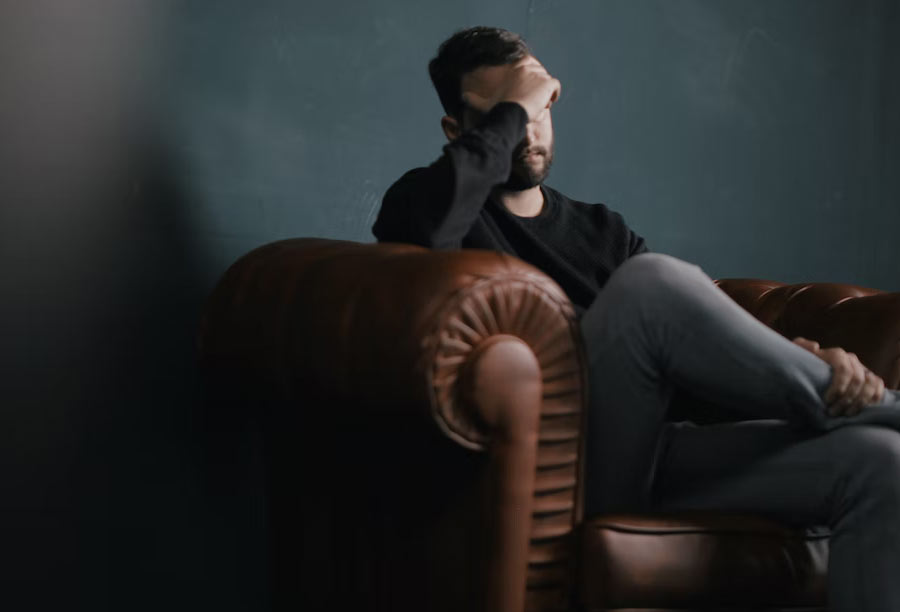How to overcome childhood trauma as an adult:
8 ways therapy for childhood trauma can help you
Louise, a twenty-nine-year old woman, has recently broken up with her boyfriend of two years and is currently living alone. She describes the relationship as being “on and off” and at times, high in conflict. Louise describes her relationship style as being quite intense and ‘needy’ in the early stages of the relationship and then feeling insecure and suspicious as the relationship deepens. Louise says she tends to start fights and push her partner away, only to feel a desperate need to rekindle the relationship once she is alone. She is not happy with this pattern and wants to be in a healthy relationship where she can start a family.
Louise reports feelings of low mood, constantly thinking and worrying about the relationship, feelings of panic when she thinks a relationship might end and, when alone, she feels worthless and a burden on her friends and family.
Louise’s childhood was tumultuous with her mother experiencing mental health difficulties and often verbally and emotionally abusive toward her. Her father left the family when Louise was three years old and she has had no contact with him since. She describes feeling depressed two times prior to now, and has been in several unhealthy, even abusive, intimate relationships with men.
Unresolved childhood trauma has short-term and long-term emotional, physical and psychological effects on an individual. Types of childhood trauma may include sexual or physical violence, neglect, psychological/ verbal abuse, abandonment, exposure to domestic violence, loss/ death or prolonged separations from parents or other primary caregivers, or removal from the family due to child protection issues.
Sadly, childhood trauma and abuse affect approximately five million Australian adults. A person who experiences abuse, neglect or significant loss as a child may appear to lead a relatively normal adult life, but they can also struggle in many ways. This can be a debilitating, confusing and lonely experience.
It is often in late adolescence or adulthood when people with a childhood trauma background tend to seek psychological counselling to help process their experience and learn new coping strategies.
Common difficulties in adulthood (as a result of childhood trauma)
As a survivor of childhood trauma and abuse you learn to use coping strategies and behaviours which may have initially protected you as a child, but tend to be harmful in the long run if the underlying trauma remains unresolved. Unhealthy coping strategies that can develop in adulthood include:
- alcohol and drug abuse,
- eating disorders,
- risk taking behaviours,
- not trusting people,
- pushing people away,
- being too self-reliant.
These coping strategies can lead to emotional difficulties and mental health problems such as anxiety, depression, posttraumatic stress disorder and suicidality. Or they may lead to dysfunctional or violent relationships and individual feelings of unworthiness.
These types of negative outcomes often lead a person to seek professional help and develop new ways of coping with the distress caused by their experiences of childhood trauma. Psychological counselling can be a highly effective way of doing this.
8 ways therapy can help you overcome childhood trauma
Let’s look at 8 ways childhood trauma counselling can help you do this.
- It validates your experience. When you see a psychologist for trauma counselling, you are given the opportunity to tell your story in its entirety in a non-judgmental, non-shaming and safe space. For some people, simply telling their story offers relief and validation.
- You can learn to trust again. When you work with a Psychologist, you will begin to learn that trusting someone is okay. If you’ve had difficult relationships where trust has been an issue, then this element of therapy is invaluable in helping you move forward.
- You can learn healthier patterns of relating. Psychologists are experienced in dealing with relationship difficulties – so if your pattern is to push the boundaries or push someone away, then your psychologist can provide you with a different experience than you would have in your relationships in your everyday life. This will help you to build new skills and feel worthy and respected for who you are.
- You can stop blaming yourself. It’s common for trauma survivors to blame themselves or feel unworthy. Talking to a Psychologist will help you process the past and feel validated so that you can move on with your life without the old feeling of guilt or shame.
- You can identify your triggers. In trauma therapy, as you process the past and you can begin to understand why you may have developed particular coping strategies and relationship patterns. When you know why you are triggered, then you have the choice to respond differently. This is very powerful.
- You can develop new coping skills. You can practice new ways of responding to stress or other triggers with the support of your psychologist. Think of it like a practice run, where you can go out into the real world, give it a go and have someone to debrief with it about and figure out where you did well and where you could improve.
- It can improve your mental health. When trauma is processed, it can improve overall mental health and wellbeing by reducing symptoms of mental health conditions such as depression, anxiety, and posttraumatic stress disorder. Sleep, eating habits and relationships may also improve.
- You can manage your emotions better. When you have better control of your emotions, you feel understood and more equipped to deal with life’s challenges. This will have a flow on effect to other aspects of your life such as your relationships, studies/ work and home life.
What therapies can help you overcome childhood trauma?
There are a range of scientifically proven therapies that help people cope with childhood trauma. Psychological interventions such as Cognitive Behavioural Therapy (CBT), Acceptance and Commitment Therapy (ACT), and EMDR are all beneficial in treating trauma and related mental health conditions.
Remember, the effects of childhood trauma cannot be resolved overnight. While some people may only need a few counselling sessions, others may need more time to understand and process their experience and find healthier ways to cope.
Take the time to research who is the best psychologist for you and what kind of therapy would be beneficial for your individual circumstances.
Brisbane psychologists who treat childhood trauma
At Ahead Psychology we have experienced Senior Psychologists who work with adults to help them overcome trauma. For further information or to book an appointment call Ahead Psychology on (07) 3352 3577 or send us a message.
References
Kezelman, C., Hossack, N., Stavropoulos, P., & Burley, P. (2015). The cost of unresolved childhood trauma and abuse in adults in Australia: A report for Blue Knot Foundation (formerly Adults Surviving Child Abuse (ASCA)). Retrieved from: https://www.blueknot.org.au/Portals/2/Economic%20Report/The%20cost%20of%20unresolved%20trauma_budget%20report%20fnl.pdf


